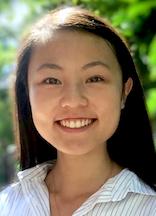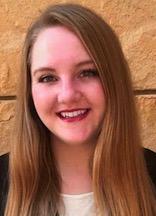
Beginning Doctors of Tomorrow
Demographically, the US continues to become more diverse, with minority populations contributing to a greater proportion of the population. However, this trend is not represented within the healthcare workforce, as African Americans and Hispanics account for approximately 6.8% and 5.9% of primary care physicians practicing in the US, respectively. Also troubling is the fact that this trend does not seem to be changing: In 2018, African Americans made up only 7.1% of entering medical students and 6.2% of matriculants were Hispanic. This translates to issues in patient care since it has been well-documented that minority populations prefer physicians who share their backgrounds and having diversity within medicine increases the cultural competency of all healthcare workers. As such, it is essential that the medical field continues to bolster efforts at increasing the amount of underrepresented minority students entering medicine both as a social justice imperative, but to also better meet the needs of the country’s changing demographics.
It goes without saying that the process of getting into medical school is not easy ⏤ it requires competitive grades, extracurricular involvement, and the time and financial capabilities to apply. But often times minority students and those from low socioeconomic backgrounds are lost on this path well before even getting to the point of applying. Recognizing this issue, the Doctors of Tomorrow program (DoT) was founded in 2012 by Dr. Jonathan Finks, Associate Professor in the Department of Surgery at Michigan Medicine.
Every year, we recruit a cohort of 9th graders from Cass Technical High School in Detroit. We bring them to the University of Michigan once a month, where they gain invaluable exposure to the medical field through interactions with medical students, residents and physicians who volunteer their time to host interactive sessions for the students including a Surgical Simulation Center Day and Physician Shadowing Day. These two sessions are student favorites every year, and enable residents and physicians across a variety of departments to get involved with Doctors of Tomorrow.
While the 9th grade program exposes a diverse set of students to the field of medicine, the newer 10th-12th and undergrad programs (DoT Rising and Succeed, respectively) provide longitudinal pipeline support by enhancing college readiness, helping to facilitate career connections and providing leadership development for our DoT alumni. Opportunities in DoT Rising include summer internships with Detroit community partners and a number of college application workshops. Each year, DoT is able to sponsor an average of 8 summer internships for Rising students. Additionally, opportunities in DoT Succeed include hands on ultrasound workshops and 1:1 mentorship with physicians at U of M. In fact, for the 2018-2019 school year, we were able to match 100% of the DoT Succeed students interested in having 1:1 mentorship with a physician mentor.
Engaging with Students
Because DoT is growing into a longitudinal program that spans 8 years, one challenge we have faced is keeping students involved along the way. In the last 3 years, we found that of the 105 students who went through the 9th grade program, an average of 32 of them attended the various DoT Rising sessions as 10th-12th graders this past year. This means that on average, 10 students per 9th grade cohort of 35 (30%) continue into the Rising program. One of the future directions of DoT is to identify some of the specific reasons as to why students choose not to participate in Rising, and how we can better support their involvement in the future.
In regards to the students further in their preparation of applying to medical school, 25% of the current Succeed students plan on applying to medical school in the next 3 years. We have also observed that of the DoT Cass Tech students who attend U of M for undergrad and participate in the DoT Succeed program, several ultimately decide not to pursue medicine. Reasons not to include interest in other healthcare or science careers and difficulties navigating the rigors of higher education. Through this observation, we have learned that despite the decision not to pursue medicine, some students stay involved, and still find value in the community and support that the program offers. This poses the challenge of finding a balanced effort between serving the pre-med students with specific medical school preparation, while providing support to students who came into the DoT program but are now interested in other careers.
These findings highlight the need for pipeline programs like DoT to further investigate why students decide not to stay involved with the program in order to better target engagement efforts between 9th grade to medical school. While our 9th grade program is well established, one ongoing area of focus for DoT is to expand on the types of experiences and support that the Rising and Succeed programs offer to better suit those who are still interested in medicine as well as those who have changed career goals. Our hope for the future is to continue to increase the number of DoT 9th grade students who ultimately enter the medical field, but we also realize that some students may change their paths along the way. For those students, we hope to continue to support them through professional leadership development and community building within DoT.
Sources
Article by Karen Hoi and Allison Milen


Contact Us
Reach out to join the conversation or to learn more about how to implement the Michigan Promise. Connect with the Department of Surgery or our faculty on Twitter to share your ideas or get in touch with the Office of Faculty & Resident Life to schedule a Michigan Promise presentation at your institution. You can also fill out our Michigan Promise Inquiry Form with any questions or comments.
Department of Surgery
2210F Taubman Center
1500 E. Medical Center Dr.
Ann Arbor, MI 48109
Phone: 734-232-5528
Email: [email protected]
Twitter: @UMichSurgery
Hashtag: #MichiganPromise
